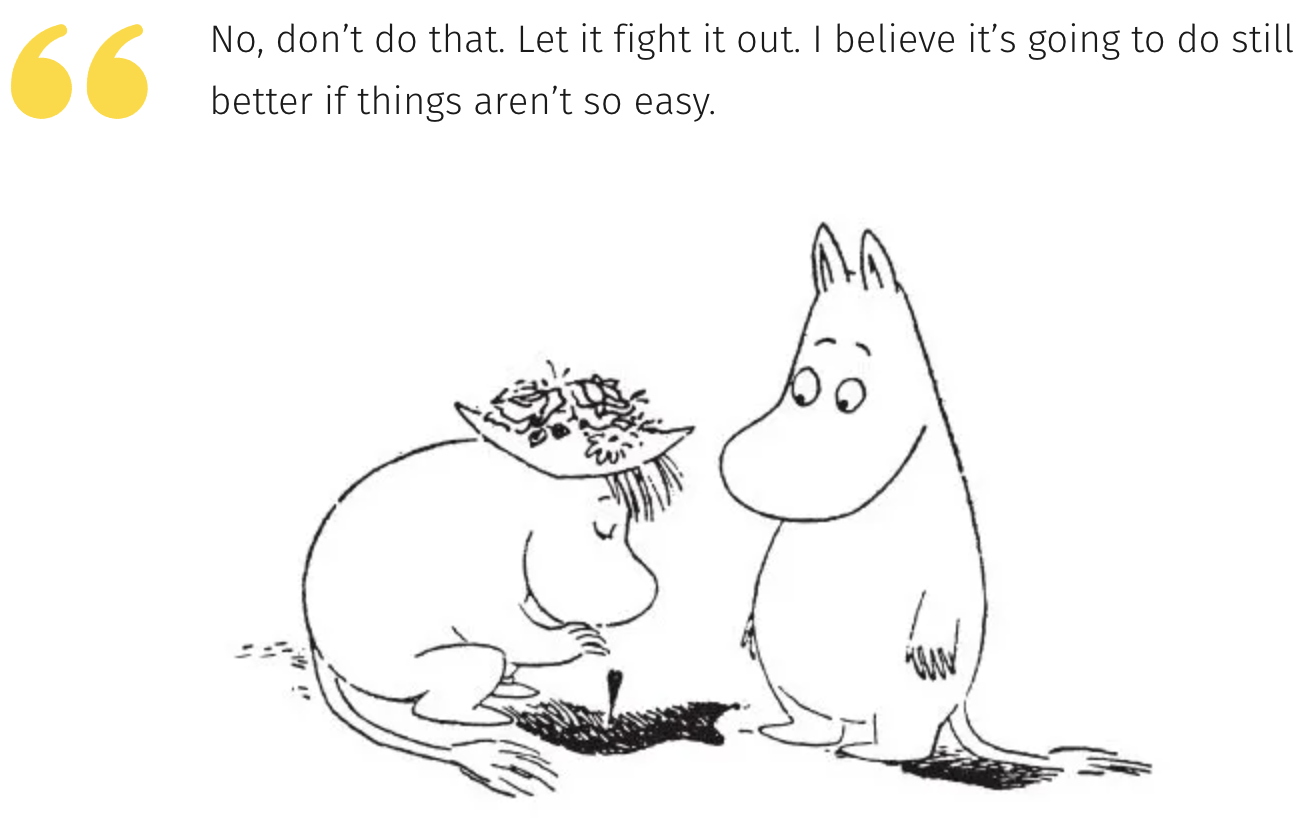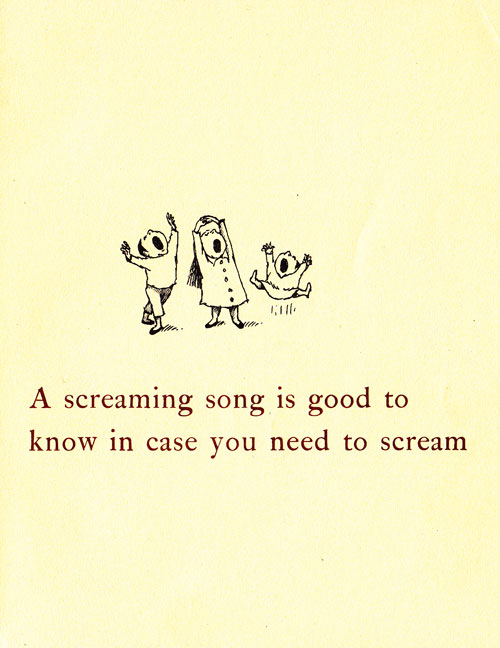Picking Yourself Up When You Fall
Michelle Wu
Why are interpreting schools all over the world (including our own) notoriously difficult?
Why are interpreting teachers so demanding? Why can’t they just give the poor students a break?
I came across a simple answer to this not-so-simple question in one of my favorite storybooks by Tove Jansson, Moominland Winter (by the way, Moomintrolls are trolls, not hippos):

Moomintroll and his friend Snork Maiden come across the first brave nose-tip of a crocus trying to push through the snow. Snork Maiden suggests that they put a glass cover over the plant to protect it from the snow at night, but Moomintroll objects, saying, “No, don’t do that. Let it fight it out. I believe its’s going to do still better if things aren’t so easy.”
Interpreting is a complicated and cognitively demanding task. It’s a difficult skill that takes years of practice and a lot of sweat and blood to master. And even top interpreters with years of experience under their belts will fall flat on their faces once in a while, because conference topics are varied and hard as nails, speakers can be impossible to interpret at times, and anything can happen (from technical glitches to sound failure) at conferences making it impossible for interpreters to do a good job. Conferences are difficult. Clients are demanding. Colleagues too. No one will invite you to work with them in a booth if you can’t carry your own load. So in order to make it as an interpreter, you must cultivate grit. You must be able to pick yourself up when you fall. That is why almost all interpreting schools, including GPTI, are relentlessly hard on their students. Interpreting students must “fight it out” if they want to succeed.
Whether or not you will make it as an interpreter depends more on your ability to pick yourself up when you fall than on your interpreting skills. And in order to that, you must learn three things: 1) how to forgive yourself, 2) how to deal with stress and 3) how to rest.
Let me start by learning how to forgive yourself.
Self-forgiveness makes the world better. You don’t become a good person by believing you are a bad one. —Matt Haig
This is a short passage from Matt Haig’s The Comfort Book. Let me paraphrase it to suit our purposes: “Self-forgiveness makes the world better. You don’t become a good interpreter by believing you are a bad one.” The path to becoming a good interpreter is strewn with frustrations and defeat. If you do not learn how to forgive yourself when you make stupid mistakes, you will never make progress. You must first believe that you can do it before you actually can do it. You just keep trying and trying. When you make mistakes, you forgive yourself, learn from the mistake, and try again.
Interpreting students often do not know how to forgive themselves. Many are perfectionists who berate themselves for the tiniest errors. In interpreting class we often dwell on the mistakes that we make, and that doesn’t help. So I genuinely believe that one of the most critical skills that we need to acquire as interpreting trainees is the ability to forgive ourselves.

Forgive yourself. Forget past grievances. Move on. As Scarlett O’Hara said in Gone with the Wind, “After all, tomorrow is another day!” There is always another conference. There is always another topic to explore. There is always another speaker’s mind to read.
Next I want to talk about the importance of learning how to deal with stress. To deal with stress, first and foremost, we have to undergo a paradigm shift: stress is neither good nor bad; stress can be good for us if we make it work for us. As interpreters, we work in stressful situations that often give us an adrenaline rush. We need that adrenaline rush to jolt us into action, to perform well, and even outperform our everyday selves. Many of us are adrenaline junkies. So it is important that we learn how to de-stress and unwind after grueling assignments and intense events.

Good food always helps. Sleep too. Anything that you can lose yourself in—an engrossing book, a thrilling movie or an engaging video game. And to quote Maurice Sendak, another favorite author of mine, “A screaming song is good to know in case you need to scream.”

Finally, I cannot over emphasize the importance of learning how to rest.
We all need to recharge by learning how to rest. You don’t need to always be busy. You don’t have to justify your existence by always being productive. Rest is an essential part of survival. I often observe my dog, Xiaobao 小寶, resting on all fours, totally without guilt, because he is more in tune with his needs. As I grow older, I have come to realize that resting might be the main point of life. Just as we need pauses between notes for music to sound good, we need commas and periods for our sentences to be coherent, and we need rest and reflection to make sense of everything. So, learning how to rest is an essential skill for interpreting trainees as well.
Let us all learn how to rest without guilt from Xiaobao. As the Chinese maxim goes, “We rest so we can continue further on our journey. 休息是為了走更遠的路”
